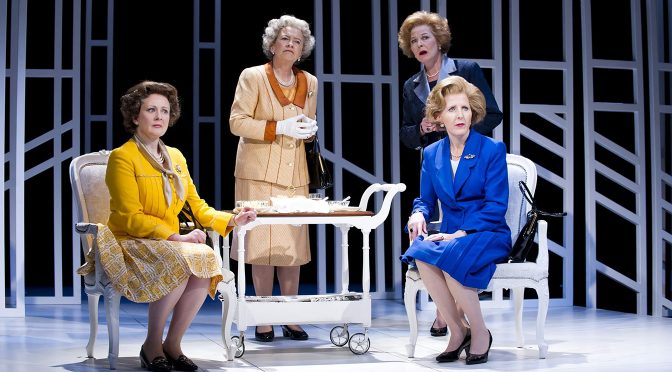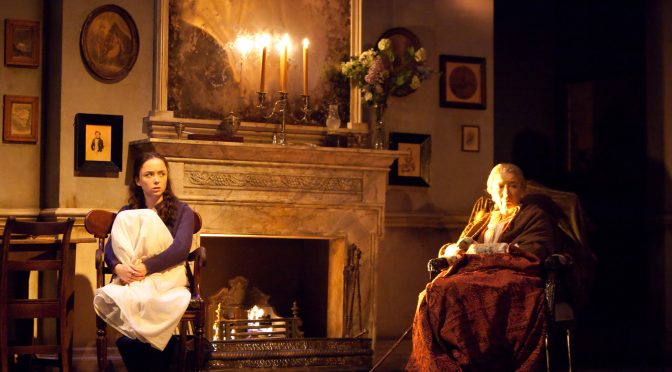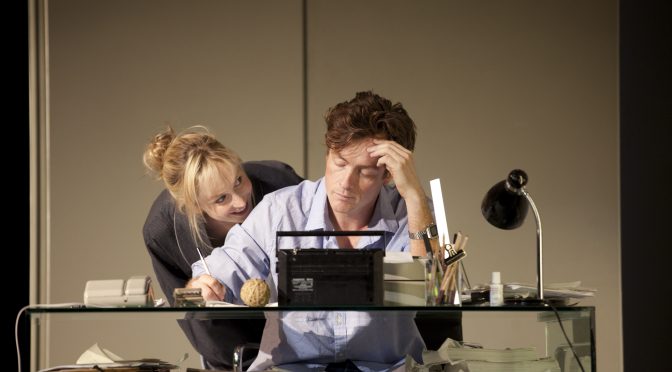Moira Buffini’s Handbagged, which after a hit run at the Tricycle Theatre had its West End premiere last night, tells the story of Margaret Thatcher’s reign as Prime Minister by imagining her private audiences with the Queen. The characters Liz and Mags reenact their 1980s meetings and are watched over by Q and T – the same figures in later life, who are portrayed as staging the show and provide an acerbic additional commentary on the action. For every joke there’s an equally amusing interjection, so you get two laughs for the price of one – brilliant.
Now, playwrights are not generally Thatcher’s natural constituency, so it is no surprise that the highlights picked out by Buffini are predictably low points. The Miners’ strike, the Falklands, South Africa and the Poll Tax: there are plenty of targets for satire. But Handbagged isn’t just funny, it’s intelligent as well. The history lesson here is cleverly told and not as biased as you might fear. As well as the notion that the ultimate establishment figure is to the left of Mrs T, the Queen’s devotion to the Commonwealth is given its due. And Thatcher is allowed to answer back – well, it would beggar belief to think she would give a playwright an easy time.
Acknowledging the evening as a theatrical production full of “artifice and sham” adds an honesty to the piece. Those meetings were private after all, speculation about their relationship just that, and Buffini wisely never presents her work as the final word. It’s fun: not only do we get discussion about whether there should be an interval – carry on through or enjoy your ice cream? – but the real anger at some of Thatcher’s decisions is given a magically light touch.
In their capacity as the show’s ‘producers’, Q and T recruit two jobbing actors to play a huge variety of roles, and they end up trying to take over the show. Jeff Rawle’s repertoire of accents is astounding and Neet Mohan is superb as he endures the “stroke of casting genius” that sees him dragged up as Nancy Reagan.
Handbagged is superbly performed. Under Indhu Rubasingham’s skillful direction, all four leading ladies excel. These are reinventions rather than simple impersonations (although Marion Bailey’s top lip deserves an award of its own). More credit then to Bailey, Stella Gonet, Lucy Robinson and Fenella Woolgar for injecting real heart into the roles. There is gravitas, when it comes to key speeches the women gave, and emotion at traumatic events. Staying just the right side of parody, Woolgar in particular never takes her eye off this fine balance. Politics has seldom been presented so originally or with such great laughs.
Until 2 August 2014
Photo by Tristram Kenton
Written 11 April 2014 for The London Magazine



